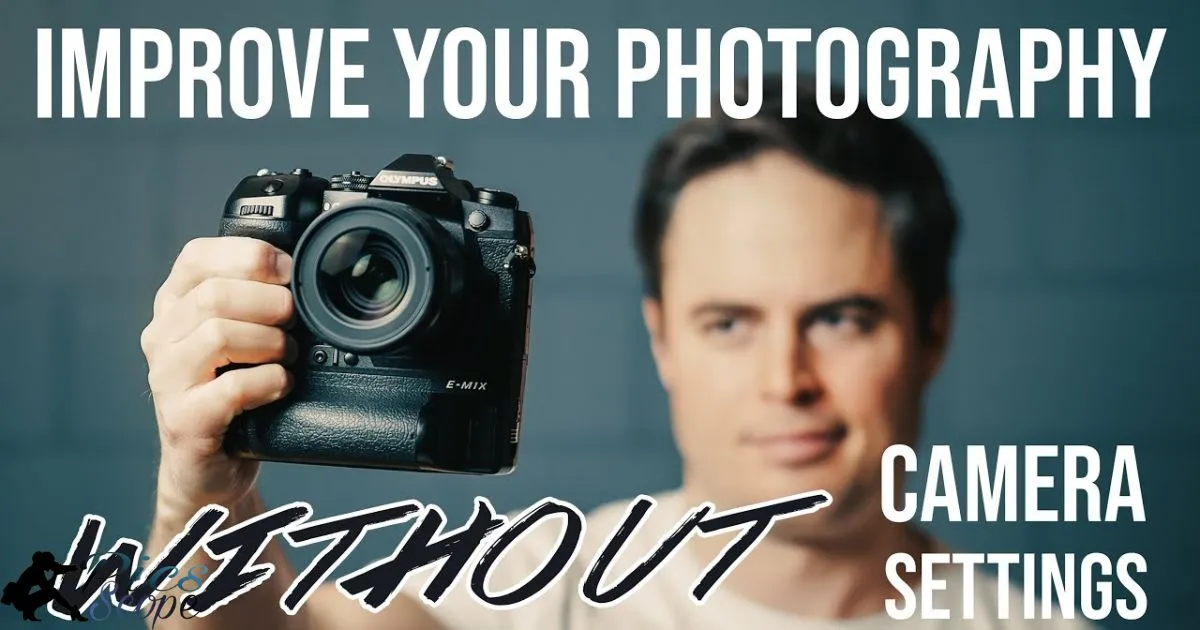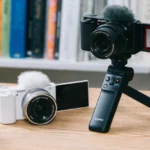Improving photography skills means enhancing the abilities to take better quality pictures. It is getting competent in using the camera equipment and learning photo composition techniques. A photographer can advance their skills through continuous practice and training.
“How Can I Improve My Photography Skills?” is a question many photographers think about. Being able to take great pictures is a skill that takes time and effort to develop. Learning new methods can help photographers take more impressive photos that capture memories and moments in a more artistic manner.
There are several ways one can hone their photography talents. Reading books and watching online video tutorials provides guidance about equipment functions and picture taking techniques. Joining a photography class is beneficial for receiving feedback and tips from an instructor. Another method is studying the photos of skilled photographers and then practicing to recreate similar styles and visual effects. Regular practice is significant for any photographer looking to augment their skills.
Mastering The Fundamentals Of Photography
It is important for photographers to understand fundamental techniques. Mastering basics like aperture, shutter speed and ISO allows you to take better photos.
Knowing how camera settings work empowers you during a shoot. You can now choose angles and lighting that complement your subject. Proper basics bring out stunning results.
Is Aperture And How Does It Affect My Photos
Aperture controls amount of light that hits your sensor or film. The wider opening lets in more light for a brighter picture.
It also impacts depth of field or area in focus. A wide aperture blurs backgrounds for portraits. Narrow ones keep landscapes sharply focused front to back.
Understanding Aperture Settings
Your lens has different f-stops for changing aperture sizes. Common ones are f/1.4, f/2, f/4, f/8, f/11 and f/16. Lower f-stops admit more light while higher ones less.
Pay attention to your camera’s aperture ring or dial. It allows selecting the right f-stop for various lighting situations.
Using Aperture For Depth Of Field
A wide aperture like f/1.4 creates shallow depth of field. Only your subject will be in focus with a softly blurred background.
For landscapes, choose f/8 to f/16 to keep the entire scene sharply focused from foreground to background. Wider depths capture everything clearly.
Choosing Aperture For Low Light Photos
When light is low, open your aperture fully by selecting the lowest f-stop like f/1.4 or f/2. This lets in maximum light for noise-free photos.
Be aware that wide apertures also decrease depth of field. But they are ideal for available light conditions.
Adjusting Aperture For Action Shots
To freeze fast-moving action, select a fast shutter speed over 1/250 sec. This requires raising ISO or widening aperture for extra light.
Avoid blurs by using apertures like f/4 or f/5.6 that capture sports in focus without over-blurring backgrounds. Fast action needs balanced settings.
What Equipment Should I Use To Improve My Photography Skills?
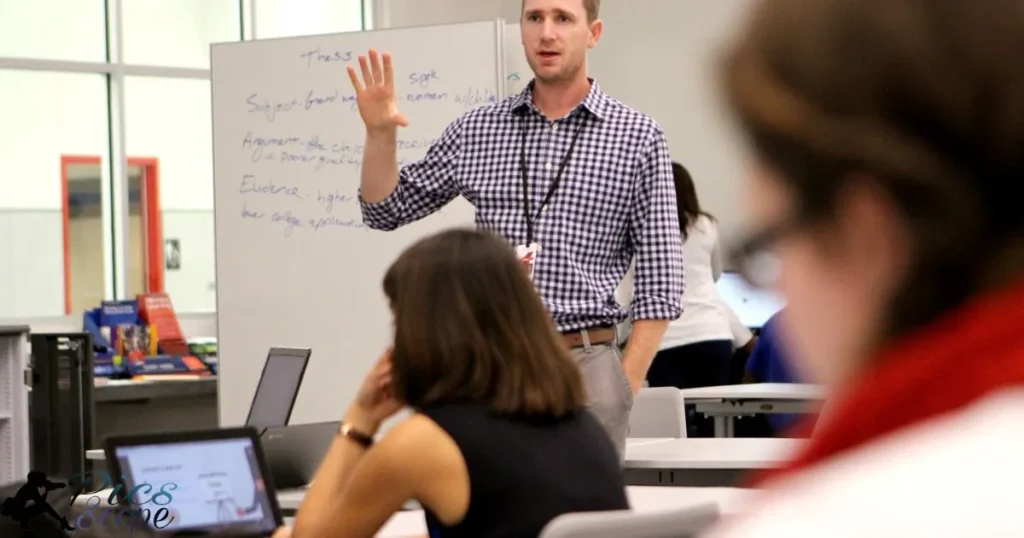
Having proper equipment ensures you take high quality photos. It also lets you be more creative with your shots.
Choosing The Right Camera For Your Skill Level
Beginners can start with a basic DSLR or mirrorless camera with guide modes. Pros use top models with advanced manual controls.
Investing In Quality Photography Lenses
Lenses transform images. Wide-angle ones open new perspectives while telephotos capture subjects from afar. Invest in sharp mid-range zoom lenses too.
Tripods: An Essential Photography Tool
Using a tripod secures your camera steadily especially in low light. It prevents handshake-blur when shooting long exposures or HDR images.
Other Gear For Advanced Photographers
Advanced gear like flashguns and light modifiers help master lighting. External monitors aid crucial feedback. Lens accessories like polarizers and neutral density filters create stunning effects.
Learning Photography Techniques
Learning photography techniques takes practice. Pay attention to the composition of each image. Experiment with different angles and perspectives to make your photos more interesting. Try using techniques like leading lines or filling the frame. Review photos to see what works best.
It’s also helpful to study the work of experienced photographers. Look at how professionals compose their shots. Which techniques do they frequently employ? Analyzing other photos can give you ideas to apply in your own work. With experimentation and review, Start Photography As A Hobby your photographic style and skills will continuously improve.
What Composition Techniques Will Take My Photos To The Next Level?
Composition is an important part of creating engaging photographs. The following techniques can help take your photos to the next level.
| Technique | Description |
| Rule of Thirds | Divides the frame into thirds. Placing subjects along lines or intersections creates more impact than centering. |
| Leading Lines | Elements like roads or fences that draw the eye through the frame to the subject. |
| Framing | Using natural frames like trees or architectural frames to focus on the subject. |
| Fill the Frame | Getting close enough so the subject fills the frame, avoiding empty space. Makes photos more impactful. |
| Foreground/Background | Separating foreground, middle and background adds depth. Close foreground object draws the eye into the scene. |
| High/Low Angles | experimenting with shots from above or below eye level creates interesting perspectives. |
Experienced in these basic compositional techniques allows photographers to intentionally design photographs that engage viewers. Taking time with composition elevates images from snapshots to intentional art.
Understanding The Rule Of Thirds
The rule of thirds divides the frame into thirds vertically and horizontally using imaginary lines. Placing your subject near these lines or their intersection points creates more impact than centering the subject. Photos that follow the rule of thirds are typically more dynamic and attention-grabbing.
Many modern cameras have a rule of thirds grid you can turn on to help align elements off-center. You can also view photos on your computer and check where elements fall within the frame. With practice, lining up compositions according to the rule becomes second nature. Your photos will have stronger visual flow and balance as a result.
Using Leading Lines And Framing
Leading lines draw the eye throughout an image towards the main subject. Lines in the foreground such as roads, fences or streams guide the viewer naturally. Framing with elements like gates, tree branches or windows also creates structure that focuses attention.
Experiment with different lines and frames in varied scenes. both natural and man-madeelements can work as leading lines. Be aware of lines that might point away from your subject too. With experience, you’ll learn to use these techniques strategically to tell visual stories.
Mastering Foreground, Middle Ground And Background
Organizing your photos into distinct foreground, middle ground and background areas adds depth and realism. A blurry, out-of-focus foreground can draw the eye into sharp subjects beyond. Objects in the mid-ground provide context, while a detailed background enhances the setting.
Notice how professional photographers employ these planes with clarity decreasing towards the back. Experiment shooting the same scene at different apertures to see how depth of field affects the layers. With practice separating planes, your images will have strong 3D pop.
Telling Stories With Composition
Strong composition can imbue even simple photos with narrative intrigue. Consider how you might set a mood or imply action through your framing. Placing subjects off-center or shooting from unexpected angles adds interest. Leading lines can imply a story’s progression.
Look for opportunities to inject storyline into your photos. Try taking a series showing a story’s development over multiple frames. With creativity and visual storytelling skills, you can give viewers insight beyond a static moment in place and time.
10 easy ways to improve your photography skills
Improving your photography skills is easier than you think. First, start by mastering your camera settings. Experiment with different modes and learn how to adjust aperture, shutter speed, and ISO.
Next, practice composition techniques like the rule of thirds and leading lines. Pay attention to lighting and how it affects your photos. Don’t forget to study the work of other photographers for inspiration and learn from their techniques. With dedication and practice, you’ll see your photography skills improve in no time.
How Can Post-Processing Enhance My Photography?
Post-processing allows adjusting properties like exposure, contrast and white balance to suit your creative vision. Small tweaks can make a big difference, pushing a normal snapshot closer to “gallery quality.” Familiarizing yourself with editing software also boosts technical skills.
You don’t need obsess over minutiae either—sometimes a few quick fixes improve photos substantially. With experience judging edits, you’ll quickly learn what enhances versus overcooks an image. Proper post-processing maximizes your camera’s capabilities.
Learning The Basics Of Lightroom
Adobe Lightroom is a powerful yet approachable photo editor. Its library allows organizing large photo collections, while its Develop module contains basic editing tools. Here you can make adjustments across tones, colors, effects and more.
Lightroom offers presets streamlining common edits like portraits or landscapes. You can also customize presets for your specific camera/lens combinations. Sharpening, noise reduction and lens correction tools optimize image quality too. Lightroom is a efficient first step approaching photo editing.
Using Photoshop For Advanced Editing
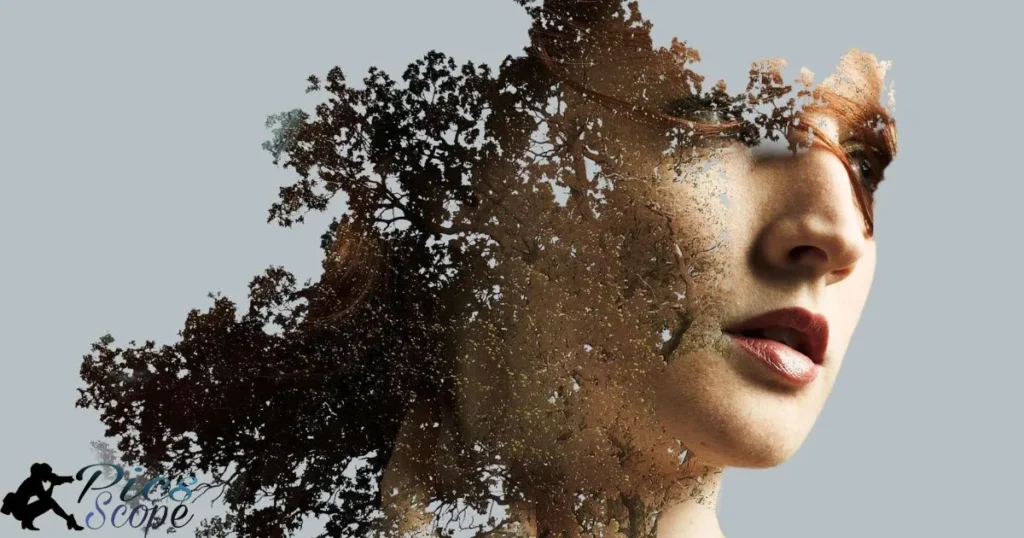
Photoshop excels at selective edits beyond Lightroom’s scope. With layers, masks and a vast toolbox, it gives precise manipulation. You can use brushes to paint adjustments onto targeted areas, or make complex composites by combining multiple images.
Advanced retouching is also possible through features like the healing/stamp tools and Frequency Separation method. Whether restoring old photos or preparing portfolio images, Photoshop unleashes incredible artistic control. Its deep learning curve pays off forserious photographers. Combined with Lightroom, these programs cover all editing needs.
To Edit And When To Leave Photos Alone
Not every photo warrants post-processing. For snapshots and casual shots, minimal adjustments may suffice. But photos intended as art or for important purposes like portfolios deserve careful optimization.
Consider a photo’s context before editing. Creative or technical issues may call for problem-solving, but some moments simply capture a fleeting instant perfectly as-is. Overediting risks losing a photo’s authentic, in-the-moment feel. Know when subtlety improves rather than replaces the original scene.
Post-Processing Workflows For Different Genres
Specialized editing techniques suit varied genres. Portraits often apply lighting/retouching Actions, while landscapes emphasize clarity/structure. Nature photos preserve authentic colors over apparent “realism.” Street photographs gain grittiness through film emulation presets.
Sports/journalism photos prioritize speed over finesse. Macro/product shots demand high resolution. Experiment with genre-specific profiles to see how styles evolve. Knowing other photographers’ go-to techniques also fuels new ideas. Consistently applying genre-tailored workflows yields consistent, professional results.
Growing As A Photographer
Photography is an ongoing creative journey. While basics ensure solid execution, the highest photos also tap emotion. To consistently see through new visual perspectives requires dedication to self-improvement.
Read photography books and blogs to fuel new ideas. Join online communities to share work and get feedback. Most importantly, shoot daily so techniques become second nature over obstacles. Constant learning ultimately sparks your own unique artistic voice that resonates long-term.
Classes And Workshops Can Improve My Photography Skills
5 tips for how classes and workshops can improve photography skills:
Learn from Instructors
Professional photographers teaching workshops have valuable real-world experience to share. Their guidance can help accelerate your learning curve and help avoid bad habits.
Get Hands-On Practice
Classes provide a structured environment to try different techniques hands-on under an instructor’s supervision. This makes abstract concepts more concrete versus just reading about them.
Receive Timely Feedback
Workshop instructors and classmates can immediately review your photos and point out things to improve. This is much more useful feedback than random online comments after the fact.
Try New Genres
Workshops focused on portraits, landscapes etc. inspire new photography interests. Trying specialties outside your comfort zone keeps learning fun and prevents stagnation.
Network with Other Photographers
Meetings others in workshops and classes leads to potential photo partners or mentors. New connections can result in ongoing collaborative learning opportunities.
Taking photography classes regularly enhances both technical and creative skills compared to self-directed learning alone. The concentrated instruction and feedback really accelerate improvement.
Community College And Continuing Education Classes
Community colleges frequently offer non-credit digital photography classes at low cost. Beginner courses cover tools, techniques and building strong compositions. Intermediate classes may focus on portrait, nature orevent photography. Instruction is structured but relaxed and encourages experimentation.
Continuing education classes through local organizations vary in length and depth. They’re accessible ways to learn new skills or try new genres. Instructors are often enthusiastic hobbyists happy to impart their knowledge. Online previews help choose classes aligning with your goals.
Local Photography Meetups And Workshops
Meetups and small workshops foster collaborative learning outside classes. Presentations introduce techniques, then participants try them with guidance. Critique sessions encourage constructive feedback.
Many master photographers offer affordable day-long workshops locally. They focus intensely on genres like wedding, sports or landscape photography with hands-on practice. Facebook groups and meetup sites list local photography enrichment opportunities to expand your skills and network in a social setting.
Online Classes From Experts
Renowned professional photographers teach in-depth multi-week online classes onCraft & Vision or CreativeLive. Comprehensive lessons cover equipment, creative and technical methods. Projects build portfolio-worthy images.
shorter paid courses from Pros like Ben Long or MaiyaGrace provide intensive instruction for improving specific skills like Lightroom workflows or portrait posing. Online classes are convenient, and many offer lifetime access to materials. Working through lessons at your own pace allows in-depth learning.
Photography Conventions And Multi Day Workshops
Large annual photography conferences offer the most intensive educational experiences. Over several days, you can attend dozens of lectures, workshops and critique sessions from world-class photographers. Hands-on events cover everything from travel and nature to wedding, portrait and commercial photography.
Some events include portfolio reviews for valuable career advice. Besides Learning, they’re great networking opportunities. Topics inspire creativity and expose you to the industry’s leading voices and most recent techniques. Investing In a convention experience can level-up your skills immensely.
How Can I Get Photography Feedback And Critiques?
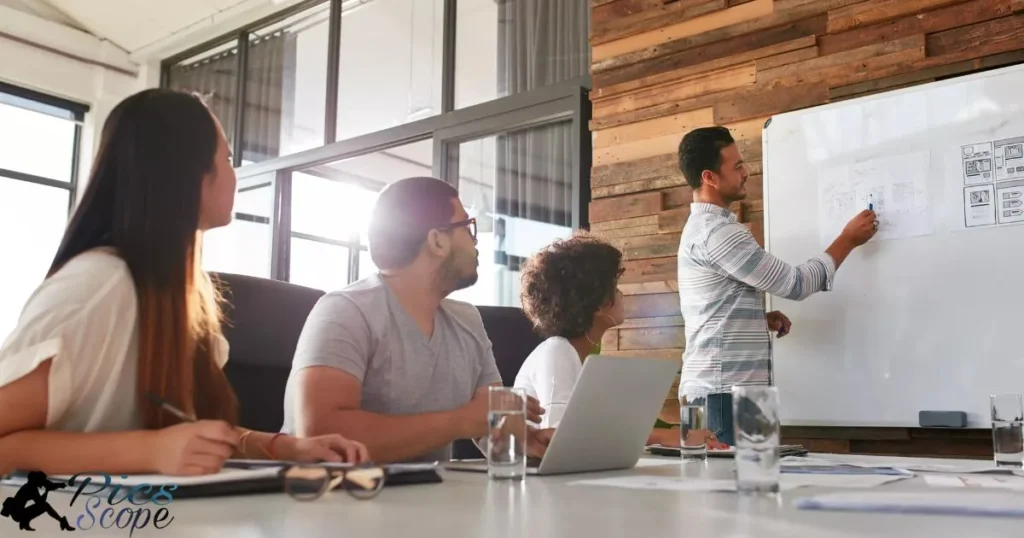
Shoot with a local photography club or find critique partners online. Regularly sharing new images to analyze strengths and weaknesses accelerates learning. Online forums likePhotography-on-the.net allow anonymous portfolio posting and peer feedback.
Entering competitions judged by experts provides perspective on where photographs succeed and how they could be better. Free contests hosted on Wikimedia Commons provide non-threatening critique environments. Even casual feedback from non-photographers sparks new
Finding A Photography Mentor
Reaching out to experienced local photographers is a great way to learn. Many pros enjoy sharing their expertise with enthusiasm newcomers. Ask if any would be willing to offer informal guidance. Meeting regularly allows posing questions and getting timely feedback on goals.
Having a mentor who understands your skill level prevents frustrating lessons. They can recommend resources and ongoing challenges appropriate for continued growth. With a mentor’s patient motivation, you’ll advance faster than trying to improve alone. Their connections within the photography community may also open new doors.
Photo Communities And Online Forums
Online photography communities allow globally accessing advice and critique. Larger forums like Reddit Photoclass host daily photography projects and challenges. Completed work receives thoughtful peer review to highlight strengths and ways to improve technically and compositionally.
Social media sites also double as online communities when using hashtags like #photocritique. Posting work publicly opens it up to constructive feedback from enthusiastic amateurs and professionals alike. Just be prepared to provide critiques to others as well to be an active community member.
Entering Local And Online Competitions
Photo contest deadlines motivate practicing specific genres and polishing post-production skills. Many local parks, art centers and county fairs host annual nature, portrait or general photography competitions at low entry fees.
Large annual online competitions on sites like Flickr or 500px offer prestige and sometimes cash prizes. Regularly entering exposes work to a broad judging pool for valuable suggestions advancing your skills and resume. Minor competitions prove confidence building with less pressure as skills progress.
Hiring A Professional Photography Coach
One-on-one coaching from professional photographers accelerates learning faster than unstructured experimentation. Coaches critique shooting methods, compositions and technical executions to refine natural talents.
Packages range from hourly critiques to weekly classes addressing portfolio development or specialized genres. Coaches craft individualized homework assignments and action plans. This dedicated training prevents developing bad habits and fast-tracks expanding your creative and business capabilities.
While an investment, professional guidance ensures progressing skills and artistry through constructive critiques beyond peer and casual feedback alone. Pair coaching with self-studies and workshops for comprehensive mastery.
Frequently Asked Question
Attending Workshops
Local photography meetups and classes provide guidance from experienced photographers. Find out what’s currently being offered in your area.
Getting Mentorship
Reaching out to photographers at your local camera store or on social media. Many enjoy helping others learn and improve.
Practicing Composition
Studying the rule of thirds and other compositional techniques. Apply them on every shoot to train your creative eye.
Learning Editing Skills
Familiarize yourself with photo editing software like Lightroom. Small tweaks can uplift images significantly.
Getting Peer Reviews
Join online forums and communities to post photos for constructive critiques. Feedback helps pinpoint areas for further improvement.
Conclusion
While learning composition and technical skills are important, continuing to improve photography skills requires passion and dedication. It is a lifelong creative journey that demands daily practice and experimentation. Even professional photographers are always refining their craft and seeking out new influences.
With a commitment to learning from other photographers, studying one’s own work, and never stopping beginner’s mindset, any photographer’s skills can reach a high level. The opportunities to enhance skills are endless through workshops, online courses, and critiques from peers. Most of all, by enjoying the process of improving photography skills each photographer will develop their own unique artistic vision and style over many years behind the lens.
